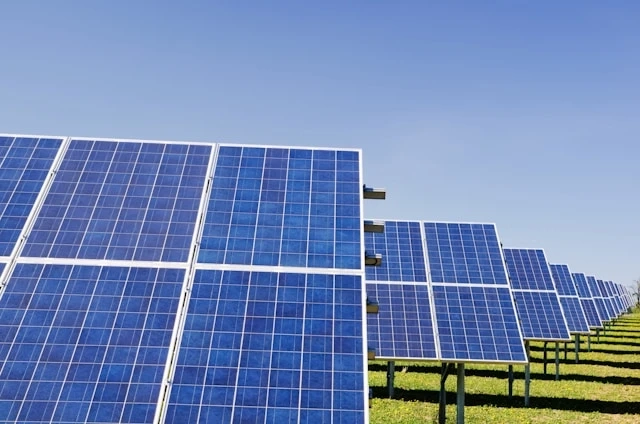New Zealand\'s unique blend of breathtaking landscapes and commitment to sustainability makes it an ideal setting for the adoption of solar energy. As the global community shifts towards renewable energy sources, Kiwi homes and businesses are increasingly turning to solar panels to power their lives. This move not only aligns with New Zealand\'s environmental goals but also offers significant financial benefits and energy independence to those who embrace it. This article explores the rise of solar energy in New Zealand, focusing on its advantages and how it\'s shaping the future of energy consumption across the nation.
The Case for Solar in New Zealand
New Zealand\'s geographical position and climate provide an excellent opportunity for solar energy production. Despite the common misconception that solar panels require constant sunlight to be effective, they can generate electricity even on cloudy days, making them a viable option for much of the country. With regions experiencing an average of 2,000 to 2,400 hours of sunshine per year, solar energy emerges as a compelling choice for Kiwis looking to reduce their carbon footprint and electricity bills.
The New Zealand government\'s commitment to 100% renewable electricity generation by 2030 further underscores the importance of solar energy. As incentives for solar installation grow, alongside decreasing technology costs, solar power becomes an increasingly attractive investment for homeowners and businesses alike. The transition to solar not only supports the national agenda but also empowers individuals and enterprises to contribute positively to the environment.
Advantages of Going Solar
Environmental Impact
Solar power stands out as one of the cleanest energy sources available. By converting sunlight into electricity, solar panels produce energy without emitting harmful pollutants or greenhouse gases, making them an environmentally friendly alternative to fossil fuels. For a country like New Zealand, which prides itself on its natural beauty and aims to lead in sustainability, the widespread adoption of solar energy is a step toward preserving these landscapes for future generations.
Financial Benefits
Investing in solar energy can lead to substantial savings on electricity bills over time. After the initial setup cost, the ongoing expense of generating solar power is relatively low, primarily because sunlight is free. Solar panel systems are designed to last 25 years or more, ensuring long-term savings. In some cases, households and businesses generate more electricity than they consume, allowing them to sell excess power back to the grid through feed-in tariff schemes, further offsetting installation costs.
Energy Independence
Solar power offers homeowners and businesses a degree of energy independence that is hard to achieve with traditional power sources. By generating their own electricity, solar panel users are less affected by electricity price fluctuations and supply disruptions. This self-sufficiency not only provides peace of mind but also contributes to the overall resilience of the energy grid, reducing demand during peak times and lowering the risk of outages.
Navigating Solar Installation
The decision to go solar is a significant one, requiring careful consideration of several factors to ensure that the solar panel system meets specific energy needs efficiently. Here’s what potential solar adopters in New Zealand need to know:
Assessment and Planning
Before installation, an assessment by a qualified solar professional is essential. This assessment includes evaluating the property’s roof space, orientation, and shading to determine the most effective setup. In New Zealand, north-facing roofs without significant shade receive the most sunlight, making them ideal for solar panels. The assessment will also estimate the system size required to meet the household or business\'s energy consumption, paving the way for a customised solar solution.
Choosing the Right Equipment
With a variety of solar panels and inverters available on the market, selecting the right equipment is crucial. Factors such as efficiency, warranty, and manufacturer reputation should be considered. In recent years, the efficiency of solar panels has improved significantly, allowing for greater power generation even in limited spaces. New Zealanders are advised to seek systems that offer a balance between high performance and cost-effectiveness.
Installation and Grid Connection
Professional installation ensures that solar panel systems are safely and correctly set up. In New Zealand, solar installations must comply with local regulations and standards, necessitating the involvement of certified electricians and solar installers. Once installed, the system needs to be connected to the national grid, a process typically facilitated by the installer. This connection allows for the aforementioned possibility of selling excess electricity back to the grid, further enhancing the financial benefits of solar energy.
The Future of Solar in New Zealand
The solar energy landscape in New Zealand is poised for significant growth, driven by technological advancements, decreasing costs, and a supportive regulatory environment. Here’s what the future may hold:
Technological Innovations
Emerging technologies such as battery storage systems and solar tiles are set to revolutionise the solar industry. Battery storage, in particular, offers the potential to store excess solar energy for use during low sunlight hours, increasing the utility and efficiency of solar systems. Solar tiles, which integrate photovoltaic cells into roofing materials, present an aesthetically pleasing alternative to traditional panels, potentially making solar adoption more appealing to homeowners concerned about visual impact.
Policy Support and Community Initiatives
Government policies and community initiatives will continue to play a vital role in promoting solar energy adoption across New Zealand. Incentives, subsidies, and funding for solar projects can lower the barriers to entry, making solar power accessible to a broader range of New Zealanders. Community solar projects, which allow multiple households to benefit from a single, shared solar system, could further broaden access to solar energy, especially in urban areas where roof space is limited.
A Sustainable Energy Future
As New Zealand progresses towards its goal of 100% renewable electricity generation, solar energy is expected to contribute significantly to this vision. The combination of individual actions, technological innovation, and supportive policies will propel New Zealand toward a sustainable, low-carbon future where solar power plays a pivotal role in the energy mix.


